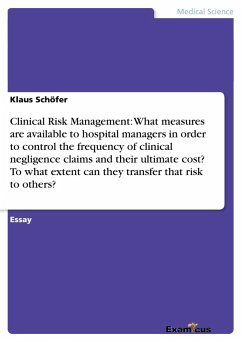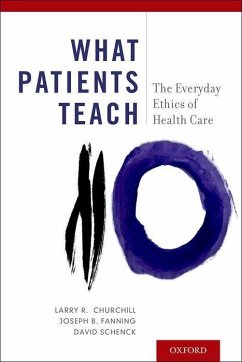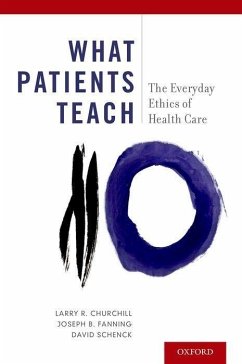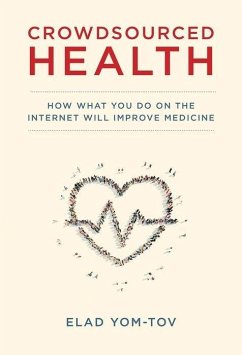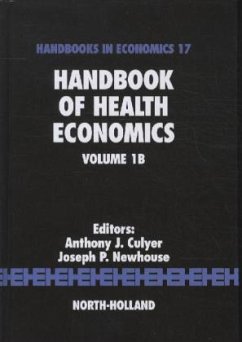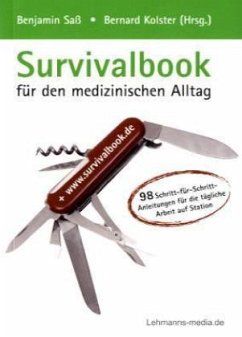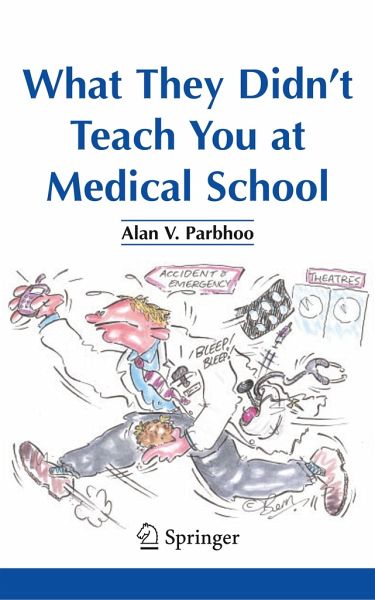
What They Didn't Teach You at Medical School

PAYBACK Punkte
15 °P sammeln!
During medical training there are certain tasks that are not taught at medical school nor in the common reference books. There are some skills that medical students are expected to learn by 'osmosis'. These skills are never officially taught or examined in medical school, but are, however, a fundamental part of being a safe, good and efficient doctor. This book includes 'golden rules' or important points to remember and case examples, both of which are given as displayed extracts.This book will help the junior doctor unlock their potential and improve their performance, cutting the time it tak...
During medical training there are certain tasks that are not taught at medical school nor in the common reference books. There are some skills that medical students are expected to learn by 'osmosis'. These skills are never officially taught or examined in medical school, but are, however, a fundamental part of being a safe, good and efficient doctor. This book includes 'golden rules' or important points to remember and case examples, both of which are given as displayed extracts.
This book will help the junior doctor unlock their potential and improve their performance, cutting the time it takes to achieve certain medical objectives. It is meant to fill in the gaps where the medical school and clinical guides stop. It gives the reader the information needed to organise themselves so that they can hit the ground running. It is not intended as a clinical survival guide, but more a friendly hand to allow the reader to get ahead in medicine and how to keep on track and develop a career path.
This book will help the junior doctor unlock their potential and improve their performance, cutting the time it takes to achieve certain medical objectives. It is meant to fill in the gaps where the medical school and clinical guides stop. It gives the reader the information needed to organise themselves so that they can hit the ground running. It is not intended as a clinical survival guide, but more a friendly hand to allow the reader to get ahead in medicine and how to keep on track and develop a career path.






